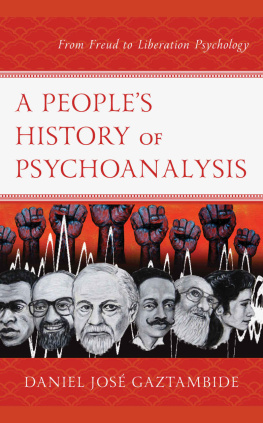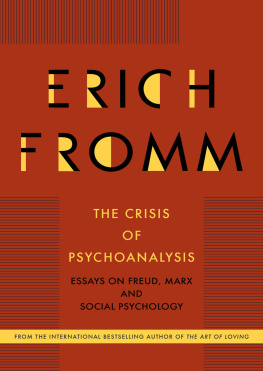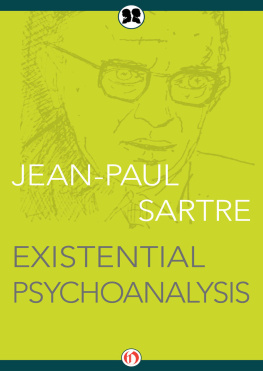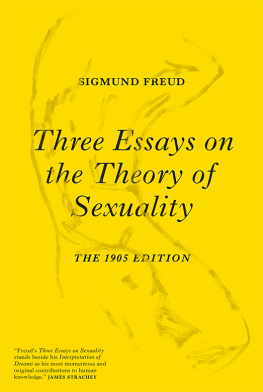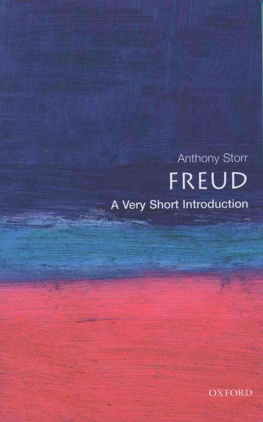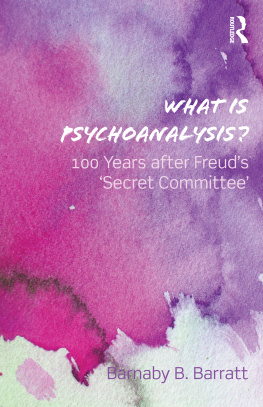Daniel Jose Gaztambide - A People’s History of Psychoanalysis: From Freud to Liberation Psychology
Here you can read online Daniel Jose Gaztambide - A People’s History of Psychoanalysis: From Freud to Liberation Psychology full text of the book (entire story) in english for free. Download pdf and epub, get meaning, cover and reviews about this ebook. year: 2019, publisher: Rowman & Littlefield, genre: Politics. Description of the work, (preface) as well as reviews are available. Best literature library LitArk.com created for fans of good reading and offers a wide selection of genres:
Romance novel
Science fiction
Adventure
Detective
Science
History
Home and family
Prose
Art
Politics
Computer
Non-fiction
Religion
Business
Children
Humor
Choose a favorite category and find really read worthwhile books. Enjoy immersion in the world of imagination, feel the emotions of the characters or learn something new for yourself, make an fascinating discovery.
- Book:A People’s History of Psychoanalysis: From Freud to Liberation Psychology
- Author:
- Publisher:Rowman & Littlefield
- Genre:
- Year:2019
- Rating:5 / 5
- Favourites:Add to favourites
- Your mark:
- 100
- 1
- 2
- 3
- 4
- 5
A People’s History of Psychoanalysis: From Freud to Liberation Psychology: summary, description and annotation
We offer to read an annotation, description, summary or preface (depends on what the author of the book "A People’s History of Psychoanalysis: From Freud to Liberation Psychology" wrote himself). If you haven't found the necessary information about the book — write in the comments, we will try to find it.
A People’s History of Psychoanalysis: From Freud to Liberation Psychology — read online for free the complete book (whole text) full work
Below is the text of the book, divided by pages. System saving the place of the last page read, allows you to conveniently read the book "A People’s History of Psychoanalysis: From Freud to Liberation Psychology" online for free, without having to search again every time where you left off. Put a bookmark, and you can go to the page where you finished reading at any time.
Font size:
Interval:
Bookmark:
A Peoples History of Psychoanalysis
Psychoanalytic Studies:
Clinical, Social, and Cultural Contexts
Series Editor:
Michael OLoughlin, Adelphi University
Mission Statement
Psychoanalytic Studies seeks psychoanalytically informed works addressing the implications of the location of the individual in clinical, social, cultural, historical, and ideological contexts. Innovative theoretical and clinical works within psychoanalytic theory and in fields such as anthropology, education, and history are welcome. Projects addressing conflict, migrations, difference, ideology, subjectivity, memory, psychiatric suffering, physical and symbolic violence, power, and the future of psychoanalysis itself are welcome, as are works illustrating critical and activist applications of clinical work.
See https://rowman.com/Action/SERIES/LEX/LEXPS for a list of
advisory board members.
Titles in the series
A Peoples History of Psychoanalysis: From Freud to Liberation Psychology, by Daniel Jose Gaztambide
Rethinking the Relation between Women and Psychoanalysis: Loss, Mourning, and the Feminine, edited by Hada Soria Escalante
Lives Interrupted: Psychiatric Narratives of Struggle and Resilience, edited by Michael OLoughlin, Secil Arac-Orhun, and Montana Queler
Women and the Psychosocial Construction of Madness, edited by Marie Brown and Marilyn Charles
Revisioning War Trauma in Cinema: Uncoming Communities, by Jessica Datema and Manya Steinkoler
Women & Psychosis: Multidisciplinary Perspectives, by edited by Marie Brown and Marilyn Charles
Psychoanalysis from the Indian Terroir: Emerging Themes in Culture, Family, and Childhood in India, edited by Manasi Kumar, Anup Dhar, and Anurag Mishra
A Three-Factor Model of Couples Psychotherapy: Projective Identification, Level of Couple Object Relations, And Omnipotent Control, by Robert Mendelsohn
A Peoples History of Psychoanalysis
From Freud to Liberation Psychology
Daniel Jos Gaztambide
LEXINGTON BOOKS
Lanham Boulder New York London
Published by Lexington Books
An imprint of The Rowman & Littlefield Publishing Group, Inc.
4501 Forbes Boulevard, Suite 200, Lanham, Maryland 20706
www.rowman.com
6 Tinworth Street, London SE11 5AL
Copyright 2019 by The Rowman & Littlefield Publishing Group, Inc.
All rights reserved. No part of this book may be reproduced in any form or by any electronic or mechanical means, including information storage and retrieval systems, without written permission from the publisher, except by a reviewer who may quote passages in a review.
British Library Cataloguing in Publication Information Available
Library of Congress Control Number: 2019950462
ISBN 9781498565745 (cloth: alk. paper)
ISBN 9781498565752 (electronic)
 TM The paper used in this publication meets the minimum requirements of American National Standard for Information Sciences Permanence of Paper for Printed Library Materials, ANSI/NISO Z39.48-1992.
TM The paper used in this publication meets the minimum requirements of American National Standard for Information Sciences Permanence of Paper for Printed Library Materials, ANSI/NISO Z39.48-1992.
This is what the LORD says: Administer justice and righteousness. Rescue the victim of robbery from the hand of his oppressor. Do no wrong or violence to the stranger, the fatherless, or the widow. Do not shed innocent blood in this place.Jeremiah 22: 3
You must not exploit or oppress a stranger, for you yourselves were strangers in the land of Egypt.Exodus 22: 21
Quitate tu, pa ponerme yo. / Remove yourself, so I can place myself.Puerto Rican saying
I was walking through the book stacks of Burke Library at Union Theological Seminary, balancing a leaning tower of books between my hands and my chin, looking for a copy of Jessica Benjamins The Bonds of Love: Psychoanalysis, Feminism, and the Problem of Domination (1988) for my masters thesis. I was writing about the parallels I saw between her psychoanalytic theory of intersubjectivity and Paulo Freires critical pedagogy, noting a resemblance that could provide an entry point for a dialogue between psychoanalysis and liberation psychology. Paulo Freire, after all, had been a major influence for Ignacio Martn-Bar, the founder of liberation psychology itself. Making this connection could provide me with a way of talking about psychoanalytic thinking as a participant in social justice activism. I was not too enamored with Freud back then. He seemed stuffy, cold, distant, and unrelatable. My undergraduate studies and much of what I was exposed to at the time impressed upon me the idea that Freudian psychoanalysis was outdated, irrelevant, and past its prime. Worse still, psychoanalysis and its founder were irredeemably White, bourgeois, and oppressive. Psychoanalysis did not address issues of culture, let alone inequality, colonialism, and oppression. It was part of the problem. But maybe, I thought, there was the possibility for contemporary, especially relational psychoanalysis to be part of the solution. What was old was bad and what was new, well, it had to be good.
Liberation theology and psychoanalysis were strange bedfellows at Union. Students and faculty looked askance at psychoanalysis with suspicion at its erasure of social and political forces in the life of the soul. Psychoanalytic faculty and students at times, too, recoiled as they defended why a focus on the inner life, the passions, and embodied aliveness was meaningful irrespective of politics, but also crucially important to them. As a masters student from Puerto Rico with a commitment to social justice and a desire to explore how psychoanalysis and clinical psychology could inform social liberation, I found myself trying to bridge worlds, communities, and discourses. Could psychoanalysis, despite its retrograde history with respect to race, gender, class, and sexuality still have something to say to me? Could it
I trip over a small ladder; my fumbling grants the stack in my hands wings as books flew everywhere. I get absentminded sometimes when Im deep in thought. I start to berate myself for not looking where Im going when I spot a book out the corner of my eye. I scan the title a couple of times to make sure Im reading it right and that it says what I think it says. Freuds Free Clinics: Psychoanalysis and Social Justice19181938. Elizabeth Danto. Freud and... social justice? I did not know what to make of this book, but I was curious. I pulled it from the shelf and added it to my stack.
A year passed. I defended my thesis, and during this time I applied and was admitted into Rutgers Universitys Graduate School of Applied and Professional Psychology (GSAPP). I did not remember Dantos book until the day I was packing to move from New York City to New Brunswick to start doctoral school. In between filling boxes with books and clothes, I took a break and decided to leaf through the book. I was immediately enraptured and finished it within the day. My thoughts were racing as what felt like a hidden and forgotten history revealed itself through Dantos work. A different history from what I had been led to understand, one in which Freud and his colleagues were in thought and in deed engaged with expanding the contours of psychoanalysis to include issues of economic inequality, racial discrimination, and colonial exploitation. Dantos work led me to Sander Gilman, and his erudite volumes on Freuds racial identity as a Jew growing up in an anti-Semitic climate that treated him, and the rest of the first generation of psychoanalysts, as an other. Through Gilmans work as well as others, I became exposed to a different depiction of Freud and the early analysts, one in which they navigated a world brimming with far-right fascism, everyday racism and discrimination, and the ebb and flow of inequality that affects us all. For the first time, the story of psychoanalysis spoke to me.
Font size:
Interval:
Bookmark:
Similar books «A People’s History of Psychoanalysis: From Freud to Liberation Psychology»
Look at similar books to A People’s History of Psychoanalysis: From Freud to Liberation Psychology. We have selected literature similar in name and meaning in the hope of providing readers with more options to find new, interesting, not yet read works.
Discussion, reviews of the book A People’s History of Psychoanalysis: From Freud to Liberation Psychology and just readers' own opinions. Leave your comments, write what you think about the work, its meaning or the main characters. Specify what exactly you liked and what you didn't like, and why you think so.

